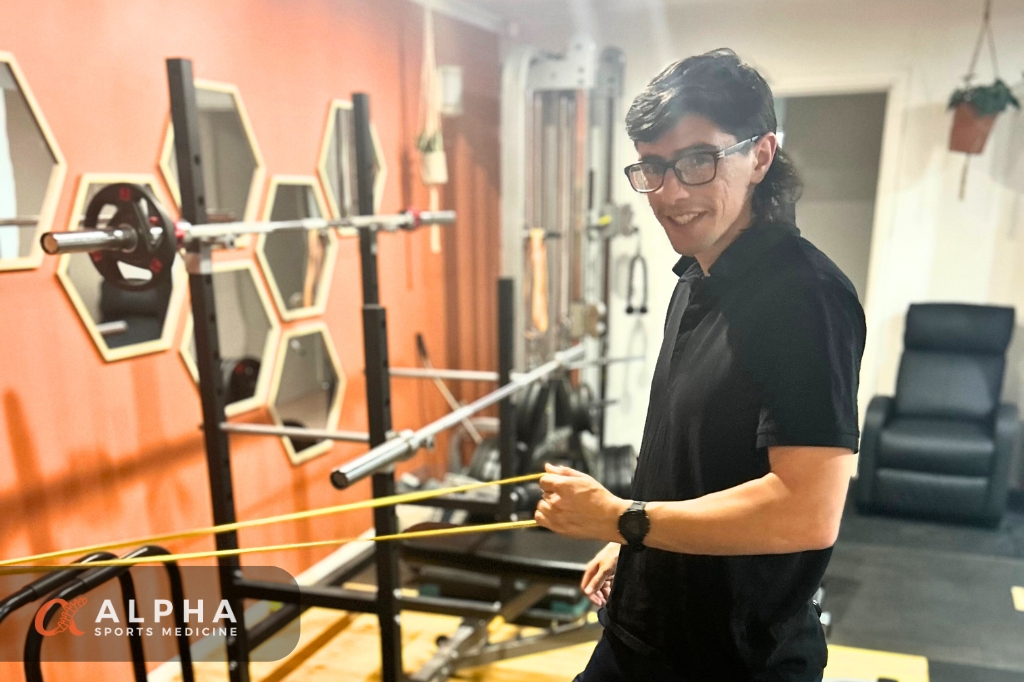Do you have diabetes and been told you need to start exercising?
Living with diabetes can be a daunting journey, but with the right approach, combining exercise, nutrition and lifestyle, it’s possible to manage the condition effectively and lead a fulfilling life. At Alpha Sports Medicine in Newport, integrating Exercise Physiology into diabetes management plan is not just beneficial; it’s essential. In this blog, we’ll shine the light on how exercise physiology can be a powerful tool in the battle against diabetes, specifically tailored for those in Newport, Spotswood, Altona, Yarraville and Williamstown.
Understanding Diabetes
Diabetes is a chronic health condition involving elevated blood sugar (or blood glucose) levels in the body. When blood sugar rises in a healthy body, a hormone called insulin is released to bring these levels down. In someone with diabetes, their body cannot lower their blood sugar due to no insulin being produced, not enough insulin being produced or the body becoming resistant to insulin.
Elevated blood sugar levels can lead to long term damage of your eyes, blood vessels, nerves and kidneys.
There are 3 types of diabetes: type 1 diabetes, type 2 diabetes and gestational diabetes.
- Type 1 Diabetes: an autoimmune disease where the body attacks the pancreas (which produces insulin.
- Type 2 Diabetes: a lifestyle disease where the body gradually becomes resistant to the effects of insulin and stops producing enough insulin. Type 2 diabetes is the most common form of diabetes.
- Gestational Diabetes: elevated blood glucose levels occurring during pregnancy.
Type 2 diabetes is the most common form of diabetes with more than 95% of diabetes cases being this form of diabetes. There are also a lot of factors that contribute to developing type 2 diabetes, such as age, smoking, nutrition and exercise levels.
The Role of Exercise Physiology
Exercise physiology is the science that studies how the body responds and adapts to physical activity. For individuals with diabetes, incorporating exercise physiology principles into their routine can have profound benefits on their health:
- Improved Insulin Sensitivity: Exercise helps cells become more sensitive to insulin, allowing for better blood sugar regulation.
- Weight Management: Regular physical activity aids in weight loss or maintenance, which is crucial for managing Type 2 diabetes.
- Cardiovascular Health: Exercise strengthens the heart and improves circulation, reducing the risk of heart disease, a common complication of diabetes.
- Stress Reduction: Physical activity releases endorphins, which can alleviate stress and improve overall well-being.
- Blood Sugar Control: Consistent exercise can lead to more stable blood sugar levels over time
Exercise Therapy for Diabetes Management
A combination of aerobic exercise and resistance training is recommended in managing blood sugar level in type 2 diabetes.
Aerobic exercise is training your heart and lungs. This can be anything from walking to running or anything that gets your heart pumping and gets you breathing deeper.
Resistance training is training your muscles. As the name suggests, it involves working against a “resistance”. This is commonly done by training with weights or resistance bands.
The National Physical Activity Guidelines recommend to manage and reduce the risk of type 2 diabetes, adults (aged 18-64 years) should aim for:
- 2.5 to 5 hours of moderate-intensity physical activity per week
- 1.25 to 2.5 hours of vigorous-intensity physical activity per week
- 2 days of muscle strengthening (resistance) activities per week
If you are an older adult (aged 65 years and over), the recommendations are:
- 30 minutes of moderate-intensity exercise on most (preferably all) days
- Strength activities, such as weight training, are encouraged
If you have not been active in a while (or at all) this can seem like a big ask. However, the guidelines also say that doing some form of exercise is better than nothing. You can start with small amounts and build up to these recommendations.
Why you need an Exercise Physiologist as part of your healthcare team
Exercise Physiologists are trained to help people manage type 2 diabetes through exercise. Accredited Exercise Physiologists at Alpha Sports Medicine are here to help people manage a range of chronic diseases including type 2 diabetes. The Best Exercise Physiologist is available for Newport, Spotswood, Yarraville, Altona and Williamstown residents, where a treatment plan will be designed specifically for you.
- Initial Exercise Physiology Assessment: Your Exercise physiologist will go through a thorough case history and take you through a thorough an assessment to help you work out the best way to implement your exercise program
- Group exercise sessions: You may be eligible for Medicare subsidized sessions for Exercise Physiology right here at Alpha Sports Medicine, Newport. This type of Medicare referral can be extremely helpful for those with Type 2 Diabetes. If you have been diagnosed with Type 2 Diabetes, you can access up to 9 sessions with an Exercise Physiologist with a referral from your doctor. This can be in addition to a Chronic Disease Management plan.
- 1:1 exercise sessions: for tailored individual programming we recommend personal Exercise Coaching with our Exercise Physiologist in Newport.

Living with diabetes doesn’t have to be hard. Our Exercise Physiology program in Newport for Diabetes presents the opportunity to harness the power of exercise physiology for improved health and well-being. By embracing a physically active lifestyle, individuals can take proactive steps towards managing their Diabetes effectively with an Exercise Physiologist to guide them along the way. Remember, when it comes to diabetes, consistency and enjoyment are key to long-term success on this journey towards optimal health.






